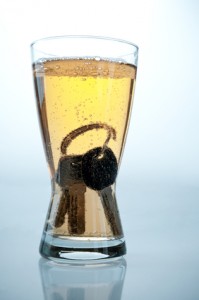 The California Court of Appeal for the Fourth District recently ruled that an employer may be held legally liable for an employee getting drunk at a company party and causing a fatal car accident. The case is entitled, Purton v. Marriott International Inc. (for a PDF of the full court opinion, click here).
The California Court of Appeal for the Fourth District recently ruled that an employer may be held legally liable for an employee getting drunk at a company party and causing a fatal car accident. The case is entitled, Purton v. Marriott International Inc. (for a PDF of the full court opinion, click here).
Facts of the Case: Michael Landri was employed as a bartender for the Marriott Del Mar Hotel in San Diego, CA. The hotel was having its annual holiday party and Michael decided to “get the party started early” by consuming a couple of shots of Jack Daniels and some beer at home before leaving to go to the affair being held at the hotel. At the event, he continued to consume alcohol, including hard liquor, being served by one of the hotel managers who was acting as a bartender for the event. He apparently brought a flask with him to the party and the hotel manager filled the flask for him “to go.” After the party, another hotel employee drove a group of workers to Landri’s house. Landri stayed about 20 minutes without consuming any more alcohol and then attempted to drive a co-worker home. Landri drove reportedly at speeds upwards of 100 mph, rear ended a car and killed the other driver. His blood alcohol content was measured at 0.16 and he was convicted of gross vehicular manslaughter and sentenced to 6 years in prison. The family of the slain victim sued both him and his employer, Marriott Hotels. The trial court granted a Motion for Summary Judgment and dismissed the case on the basis that even the facts as viewed most favorable to the victim’s family would not be sufficient to hold the hotel liable for wrongful death.
Legal Issues: The main legal issue in this case stems from the legal doctrine of Respondeat Superior (a Latin phrase which literally translates, “let the master answer”) or vicarious liability. This is the legal theory by which an employer (or “principal”) can be held responsible for the acts, errors or omissions of their employee (or “agent”). Under California law, vicarious liability requires (at its most fundamental level) the proof of two elements as follows: (1) that the wrongdoer was an employee, agent, or acting on behalf of the employer/principal; and (2) at the time of the wrongful act, error or omission, the employee/agent was acting within the “course and scope” of the employment or agency relationship. (See: California Civil Jury Instruction 3701 based upon California Civil Code 2295, et.seq. and related statutes and cases. A related issue was was whether the employer is responsible when the wrongful acts alleged (in this case consumption of alcohol followed by driving) occur some on “company time” and some on the employee’s “own time.”
 California Accident Attorneys Blog
California Accident Attorneys Blog

